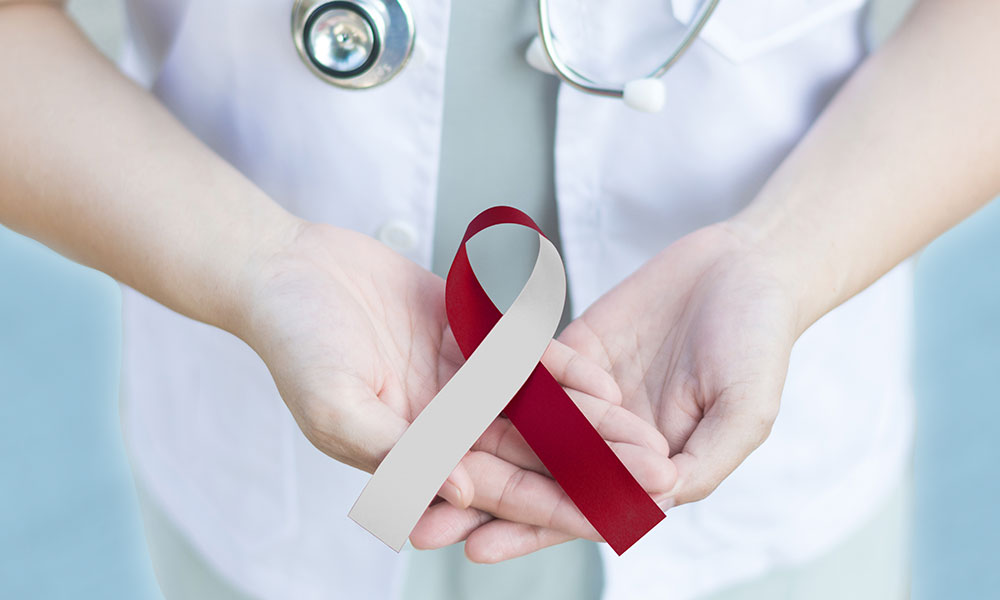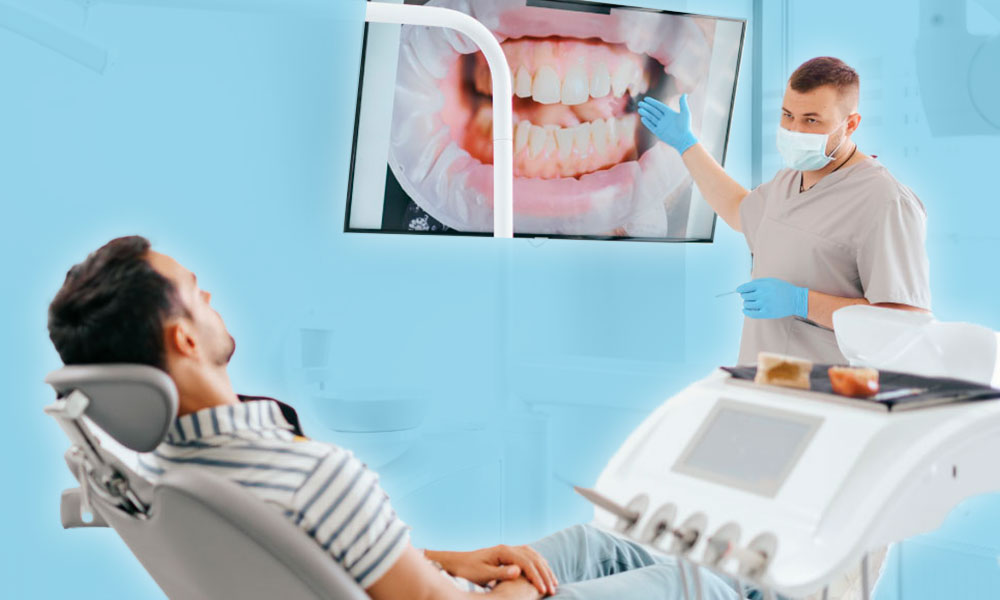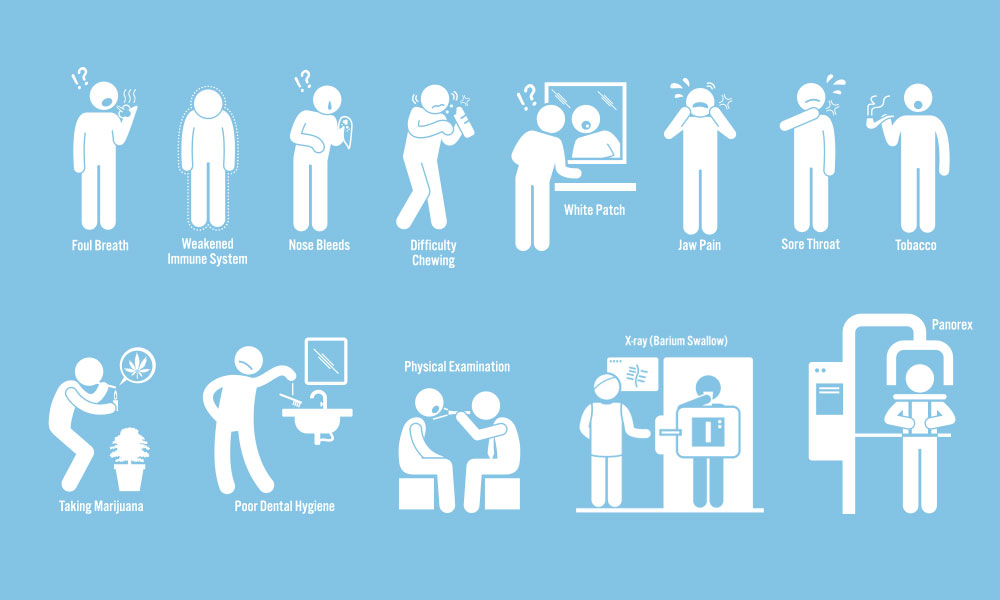Procedures
Head, Neck & Oral Cancer

Head, Neck & Oral Cancer
Sscreening & early detection is important to successful treatment.
Oral and maxillofacial surgeons are trained in the detection and diagnosis of head, neck, and oral cancer. They are also able to help develop a treatment plan in collaboration with a patient’s doctor.

Symptoms & Signs
The following may be symptoms of oral cancer. If you detect any of these, please contact us immediately for an assessment by one of our surgeons:
- White or red patches or persistent sores inside your mouth on the gums, tongue, or cheeks
- Swelling of your jaw without other obvious causes, such as trauma
- Unusual bleeding, pain, or numbness in your mouth
- Abnormal lumps in your mouth, cheeks, or neck
- A chronic sore throat or hoarseness
- Difficulty chewing or swallowing
Risk Factors
Your risk for these types of cancer is increased if any of these apply to you:
- You use tobacco of any kind – including snuff, chew, or smokeless tobacco
- You use alcohol, especially when used with tobacco
- You have been diagnosed with HPV, the human papillomavirus
- You have a weakened immune system

